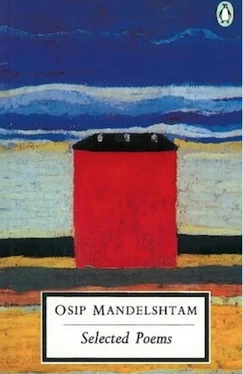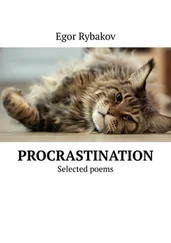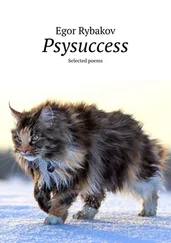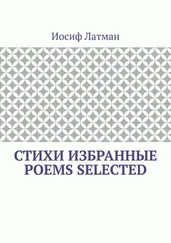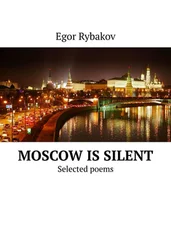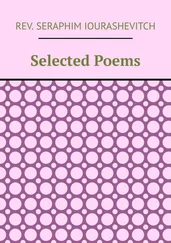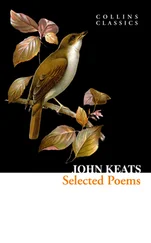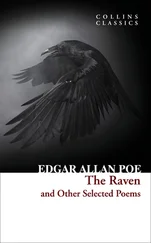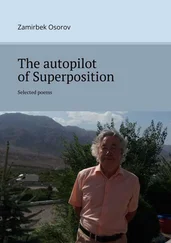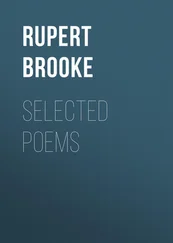Osip Mandelshtam - Selected Poems
Здесь есть возможность читать онлайн «Osip Mandelshtam - Selected Poems» весь текст электронной книги совершенно бесплатно (целиком полную версию без сокращений). В некоторых случаях можно слушать аудио, скачать через торрент в формате fb2 и присутствует краткое содержание. Город: London, Год выпуска: 1991, ISBN: 1991, Издательство: Penguin Books, Жанр: Поэзия, на английском языке. Описание произведения, (предисловие) а так же отзывы посетителей доступны на портале библиотеки ЛибКат.
- Название:Selected Poems
- Автор:
- Издательство:Penguin Books
- Жанр:
- Год:1991
- Город:London
- ISBN:978-0-14-196539-0
- Рейтинг книги:4 / 5. Голосов: 1
-
Избранное:Добавить в избранное
- Отзывы:
-
Ваша оценка:
- 80
- 1
- 2
- 3
- 4
- 5
Selected Poems: краткое содержание, описание и аннотация
Предлагаем к чтению аннотацию, описание, краткое содержание или предисловие (зависит от того, что написал сам автор книги «Selected Poems»). Если вы не нашли необходимую информацию о книге — напишите в комментариях, мы постараемся отыскать её.
Selected Poems — читать онлайн бесплатно полную книгу (весь текст) целиком
Ниже представлен текст книги, разбитый по страницам. Система сохранения места последней прочитанной страницы, позволяет с удобством читать онлайн бесплатно книгу «Selected Poems», без необходимости каждый раз заново искать на чём Вы остановились. Поставьте закладку, и сможете в любой момент перейти на страницу, на которой закончили чтение.
Интервал:
Закладка:
O.M. ‘obviously listed here some of the arts officially… encouraged in the mid-thirties, the period of violin-competitions, portrait-painting, the revival of the classical opera…’ (O. Ronen, An Approach to Mandelshtam ).
(368) The last poem in Mandelshtam’s Stalin cycle. Scythe, in Russian, is ‘k os a’. The cuckoo, as also in ‘the cuckoo is weeping in its stone tower’ (no. 121), alludes to a passage from The Lay of Igor’s Campaign , a twelfth-century poem in which Yaroslavna, Igor’s wife, mourns him ‘like a desolate cuckoo’. ‘On the Danube Yaroslavna’s voice is heard: like a desolate cuckoo she cries early in the morning. “I will fly,” she says, “like a cuckoo along the Danube, I will dip my sleeve of beaver-fur in the river Kayala, I will wipe the Prince’s bleeding wounds…”’ ( Penguin Book of Russian Verse , edited by D. Obolensky). ‘[Mandelshtam] lamented his failing eyesight, which had once been “sharper than a whetted scythe” but had not had time to pick out each of the “lonely multitude of stars”.’ (N.M., Hope Against Hope .)
(370) Here O.M., according to D. Rayfield, sees himself as Daniel who championed Israel ( Russian Literature Triquarterly , 1975).
‘The singer is free to descend into the lion’s den, since her voice can conquer the lion, escape from the fortress – Marian Anderson’s speciality was negro spirituals…’ (J. Baines).
The poem combines two images: of Marian Anderson, whose deep voice O.M. had heard on the radio; and of a singer friend whose husband had just been re-arrested after recent release from five years in a camp. (See Hope Against Hope , chapter 39.)
(384) N.M., the ‘child’ or ‘little one’, is entrusted in this lullaby to the care of the stars because ‘the radiance of the stars is also that of his poetry’ (J. Baines).
O.M. was embarrassed, as far as eventual publication might be concerned, by the intimacy of what he called ‘these verses of the bed.’
(385) ‘… Hera was first worshipped in the form of a cow’ (J. Baines).
(387) ‘The Greek flute’s sounds are clearly the poetic force before it has been precipitated in language… [The] flute’s music… crosses barriers, it is unselfconscious… The poet creates his own past; “making his native sea” out of clay, like the Cretan potters… [But] the flautist is in the past, unrepeatable. He is what the poet might have been or continued being, had the Hellenic world not fallen apart. Now nothing works: the sea gives no birth… [it] kills instead of giving life… [Mandelshtam’s] lips cannot work the flute, and the balance of forces… topples, leaving only the destructive, negative force to silence poetry… If there is a moral in the poem, it is that the poet, conscious of his individual death, is tainted by his fear and loses his gift of immersing himself in the medium of poetry’ (D. Rayfield, Russian Literature Triquarterly , 1975).
Rayfield points out that sea ( more ) changes into its phonetic twin plague (mor) – which I have rendered as disease ; similarly the ‘syllable ub joins the flautist’s mouth ( zuby , teeth, and guby , lips) in a fatal conjunction with death ( ub iystvo, murder…). – This sort of thing, of course, drives the translator to despair, if not self-destruction.
N.M. writes about this poem in Hope Against Hope , chapter 39: ‘Since he works with his voice, a poet’s lips are the tools of his trade, and in… [this] poem O.M. is also speaking about his own whispering lips and the painful process of converting into words the sounds ringing in his ears… The poem is… about a flute player we knew… He would bring great comfort to O.M. by playing Bach or Schubert for him. Schwab… [was] accused of espionage and sent to a camp for common criminals… He was already an old man and he ended his days there.’
(388) Henry Gifford discusses an early poem by Pasternak where the latter mentions ‘sticky greenery’, which seems to evoke the ‘sticky little leaves opening in spring’ that reconciled Ivan Karamazov to life (Henry Gifford, Pasternak ).
(394) The limping woman was Natasha Shtempel, whom the Mandelshtams knew in Voronezh.
ACKNOWLEDGEMENTS
Passages from the following works are quoted in the Notes by permission:
Jennifer Baines, Mandelshtam: The Later Poetry (Cambridge University Press, 1976).
Clarence Brown, Mandelshtam (Cambridge University Press, London and New York, 1973).
Steven Broyde, Osip Mandelshtam and His Age (Harvard University Press, 1975).
Peter France, Poets of Modern Russia (Cambridge University Press, 1982).
Henry Gifford, Pasternak (Cambridge University Press, 1977).
Poetry in a Divided World (Cambridge University Press, 1986).
Nadezhda Mandelshtam, Hope Against Hope and Hope Abandoned , copyright © 1970 and copyright © 1972 respectively by Atheneum Publishers; English translation copyright © 1970 and copyright © 1973, 1974 respectively by Atheneum Publishers, New York and Harvill Press Ltd, London (published by Atheneum Publishers, New York, and William Collins and Harvill Press, London).
Chapter 42 and Osip Mandelshtam, ‘ The Goldfinch’ and Other Poems , translated with an introduction by Donald Rayfield (The Menard Press, 1973).
Osip Mandelshtam, Complete Critical Prose and Letters , edited by Jane Gary Harris, translated by Jane Gary Harris and Constance Link (Ardis, 1979).
Osip Mandelshtam: Selected Essays , translated and edited with an introduction by Sidney Monas (University of Texas Press, 1977).
Osip Mandelshtam’s ‘Stone ’, translated with an introduction by Robert Tracy (Princeton University Press, 1981).
Sidney Monas, notes to Complete Poetry of Osip Mandelshtam , translated by Burton Raffel and Alla Burago (by permission of the State University of New York Press; copyright © 1973 State University of New York).
N. A. Nilsson, Osip Mandelshtam: Five Poems (Almqvist & Wiksell International, Stockholm, 1974).
The Penguin Book of Russian Verse , introduced and edited by Dimitri Obolensky, copyright © Dimitri Obolensky, 1962, 1963 (Penguin Books, 1962, rev. ed. 1965).
Omry Ronen, An Approach to Mandelshtam (The Magnes Press, The Hebrew University, Jerusalem, 1983).
Tom Stableford, The Literary Appreciation of Russian Writers (Cambridge University Press, 1981).
Kiril Taranovsky, Essays on Mandelshtam (Harvard University Press, 1976).
Further Reading: a Select Bibliography
Baines, Jennifer, Mandelshtam: The Later Poetry , Cambridge University Press, 1976.
Blot, Jean, Osip Mandelshtam , Poètes d’aujourd’hui 206, Seghers, Paris, 1972.
Broyde, S., Osip Mandelshtam and His Age: War and Revolution in the Poetry 1913–1923 , Harvard Slavic Monographs 1, 1975.
Brown, Clarence (translation), The Prose of Osip Mandelshtam , North Point Press, Berkeley, CA; Quartet, London, 1967.
Mandelshtam , Cambridge University Press, 1973.
Cohen, Arthur A., O. E. Mandelshtam: An Essay in Antiphon , Ardis, Ann Arbor, Michigan, 1974.
Freidin, Grigory, A Coat of Many Colours , Berkeley, CA, 1988.
Isenberg, Charles, Substantial Proofs of Being: Osip Mandelshtam’s Literary Prose , Slavica, Ohio, 1987.
Harris, Jane Gary (translation and introduction), Mandelshtam: The Complete Critical Prose and Letters , Ardis, Ann Arbor, Michigan, 1979.
Читать дальшеИнтервал:
Закладка:
Похожие книги на «Selected Poems»
Представляем Вашему вниманию похожие книги на «Selected Poems» списком для выбора. Мы отобрали схожую по названию и смыслу литературу в надежде предоставить читателям больше вариантов отыскать новые, интересные, ещё непрочитанные произведения.
Обсуждение, отзывы о книге «Selected Poems» и просто собственные мнения читателей. Оставьте ваши комментарии, напишите, что Вы думаете о произведении, его смысле или главных героях. Укажите что конкретно понравилось, а что нет, и почему Вы так считаете.
